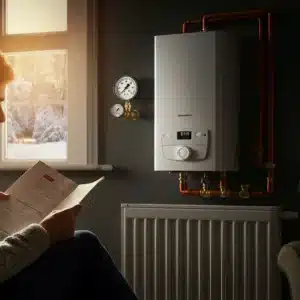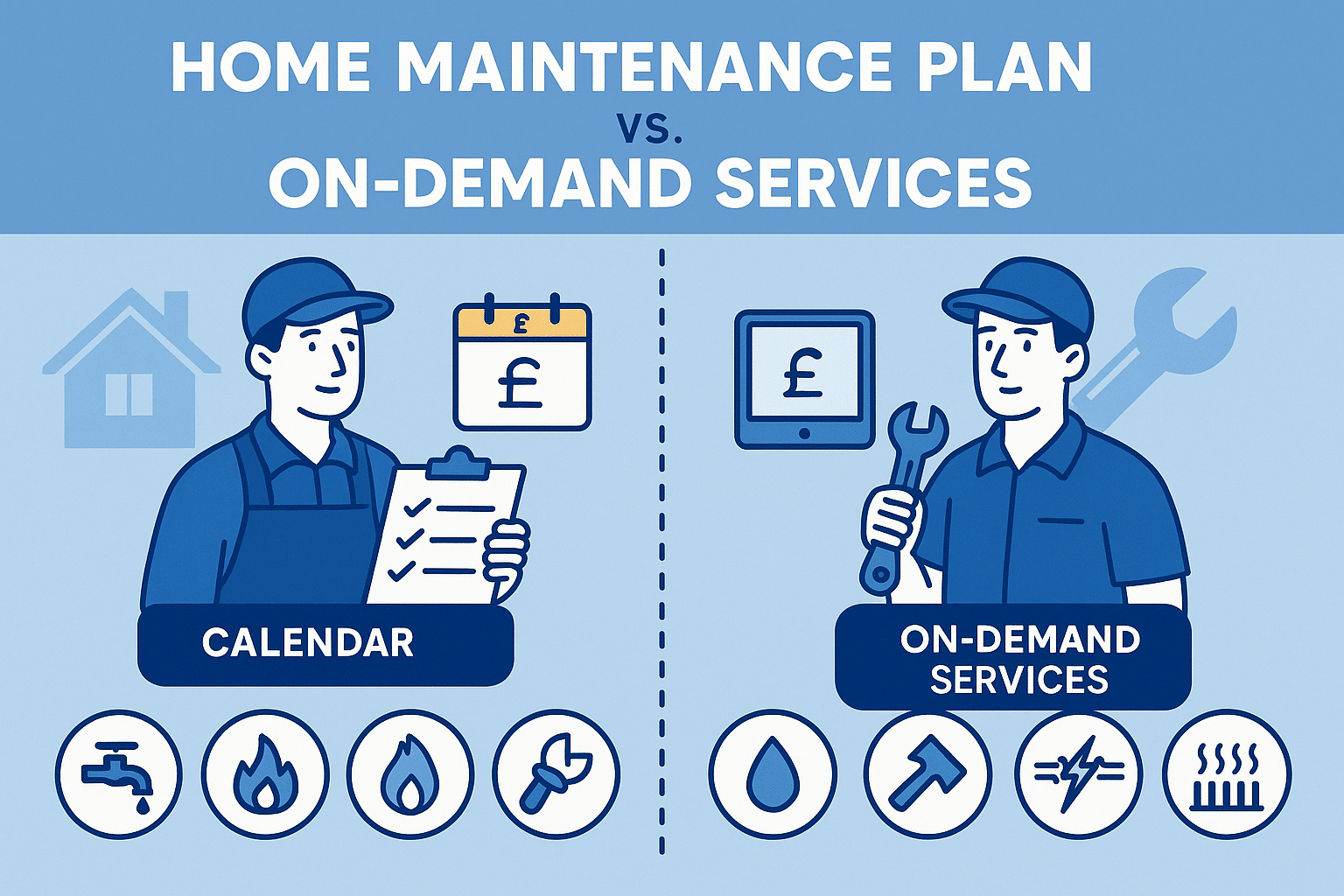 Common Boiler Error Codes & What You Should Do About Them
Common Boiler Error Codes & What You Should Do About Them
If you’ve ever been greeted by a confusing error code on your boiler display, you’re not alone. For homeowners, landlords, and property managers, boiler error codes can be both frustrating and intimidating. But they don’t have to be. Understanding these codes and the steps to address them can make a big difference in maintaining a warm and functional space.
This guide will break down some of the most common boiler error codes seen in UK households, explain what they mean, and provide actionable advice on how to resolve these issues. By the end of this post, you’ll feel more confident handling minor boiler hiccups and knowing when to call in a professional.
What Are Boiler Error Codes?
boiler error codes are diagnostic messages displayed by your boiler, indicating that something isn’t functioning as it should. These codes are designed to help you (and your engineer) quickly identify the problem, saving valuable time.
The importance of responding to these codes promptly cannot be overstated. Issues like low pressure, ignition failures, or heating sensor faults need to be addressed to avoid potential damage to your boiler or system—and to ensure your home stays warm.
Common Error Codes and Solutions
Below, we’ll walk through the most common boiler error codes in the UK, the systems they’re associated with, and the recommended actions you can take to resolve them.
1. Overheating Issues
Codes: E110, E125, E131
Boiler Brands: Various
- What it means: The boiler detects that it’s overheating. This could be caused by trapped air, faulty components, or circulation problems.
- What to do:
- Turn off the boiler and allow it to cool.
- bleed your radiators to release any trapped air that might be causing overheating.
- Reset the boiler.
If the issue persists, you’ll need to contact a Gas Safe registered engineer.
2. Pressure-Related Problems
Codes:
- Low pressure: E119, F1 (Ideal), E118 (Baxi)
- High pressure: E117 (Baxi)
- What it means: Low water pressure indicates insufficient pressure in the system, while high pressure might indicate overfilling or internal system faults.
- What to do:
- For low pressure:
-
- Locate the filling loop on your boiler.
- Slowly add water until the pressure gauge reads between 1 and 2 bar.
- Close the filling loop and reset the boiler.
- For high pressure:
- Bleed your radiators to release excess pressure.
- If pressure remains high, consult a professional to check for underlying issues.
📌 Case Study: A London homeowner with an E119 error used the filling loop to repressurize their boiler and restored functionality in under 10 minutes. Regular pressure monitoring can prevent such issues in the future.
3. Ignition Failures
Codes:
- E133, EA 227 (Worcester Bosch), LC & L2 (Ideal), LF (Ideal), A01 (Alpha), E135 (Baxi)
- What it means: These errors typically indicate an issue with gas supply, ignition electrodes, or flame sensors.
- What to do:
- Check your home’s gas supply by confirming that other gas appliances, like your stove, are working.
- Ensure your gas meter is on and has credit (if pre-paid).
- Reset the boiler.
Persistent failures may require a professional to inspect gas valves and ignition components.
📌 Tip for Cold Weather: If your boiler displays an EA code (Worcester Bosch) in winter, the issue might be a frozen condensate pipe. Carefully pour hot (not boiling) water over the pipe to thaw it, or use a hairdryer for quicker results.
4. Sensor and Communication Errors
Codes:
- E256 (Vaillant), F75 (Vaillant), F28 (Worcester Bosch)
- What it means:
- Sensor issues like F75 can prevent the system from detecting water flow within the boiler.
- Communication errors, such as F28, might signal a problem between components.
- What to do:
- Check for blockages in valves or pipes.
- Inspect the pump functionality.
- Bleed radiators to ensure water is circulating properly.
If you suspect a faulty sensor, you’ll likely need a skilled engineer to replace it.
5. Specific Boiler Brand Issues
Different brands have unique error codes. Below are some specific examples:
- Vaillant:
- F27: Gas supply or ignition problem. Ensure the gas supply is uninterrupted.
- F75: Sensor not detecting water flow. This issue may require sensor replacement.
- Glow-Worm:
- E20: Low water pressure. Top up the system as needed.
- Ideal Logic:
- L2 or F1: Low water pressure. Repressurize to 1–2 bar.
- Baxi:
- E25: Ignition problem. Check thermometers and reset.
- T17: Heating return sensor fault. Inspect sensor connections.
Signs You Need a Professional
While many boiler issues can be resolved at home, persistent problems require expert attention. Here are some signs it’s time to call a Gas Safe registered engineer:
- You’ve resolved an issue, but it recurs frequently.
- Error codes persist despite following the troubleshooting steps.
- You suspect a gas leak or smell gas near the boiler. Immediately call the National Gas Emergency Service on 02036270820
Remember, regular boiler service is key to preventing issues and ensuring your system operates safely and efficiently.
Stay Protected with Boiler Cover Plans
Don’t leave your boiler to chance. Our affordable boiler cover plans help you avoid costly repairs and give you peace of mind. With options starting at just £7.99/month, you’ll receive:
- Annual maintenance and 24/7 emergency support
- Discounts on repairs and replacements
- Priority call-outs
For complete boiler care, sign up for our cover plans today and ensure your heating system is always in top shape.
Wrap-Up: Confidence in Boiler Care
Understanding boiler error codes can save you time, money, and a lot of headaches. They act as your boiler’s way of telling you what’s wrong—listen to it and take action. While some issues are easy to fix on your own, others may require professional intervention to ensure safety and efficiency.
If you’re ready to take the next step in maintaining a reliable heating system, book a Gas Safe engineer or explore our boiler cover plans today. A warm, worry-free home is just a call away.
Boiler FAQs
1. What do boiler error codes mean?
Boiler error codes are displayed on your boiler’s interface and indicate a malfunction. They help you and heating engineers quickly diagnose the problem, potentially saving you time and money on repairs.
2. My boiler is overheating. What should I do?
Boiler overheating is often indicated by error codes such as E110, E125, or E131. First, turn off your boiler and allow it to cool down. Then, bleed your radiators to release any trapped air that might be causing the overheating. If the problem persists after resetting your boiler, contact a Gas Safe registered engineer.
3. How do I fix low boiler pressure?
Low boiler pressure is usually indicated by error codes such as E119, F1 (Ideal), or E118 (Baxi). Locate the filling loop on your boiler and slowly add water until the pressure gauge reads between 1 and 2 bar. Close the filling loop and reset your boiler.
4. What should I do if my boiler won’t ignite?
Ignition failure error codes include E133, EA 227 (Worcester Bosch), LC & L2 (Ideal), LF (Ideal), A01 (Alpha), and E135 (Baxi). Start by checking your gas supply. Make sure other gas appliances are working and that your gas meter is on and has credit if it’s pre-paid. Reset the boiler. If the issue continues, contact a Gas Safe engineer to check the gas valves and ignition components.
5. What does it mean if my boiler has a sensor or communication error?
Sensor or communication errors can be indicated by codes like E256, F75 (Vaillant), or F28 (Worcester Bosch). This could mean a faulty sensor, a blockage in the system, or a problem with the pump. Check for blockages, inspect the pump, and bleed the radiators. If you suspect a faulty sensor, call a Gas Safe engineer for a replacement.
6. My boiler shows a brand-specific error code. What does it mean?
Different boiler brands use unique error codes. Refer to your boiler’s manual for a detailed explanation of brand-specific codes. You can also find information online or contact the boiler manufacturer’s customer support.
7. When should I call a professional for boiler issues?
While some issues can be addressed at home, it’s best to call a Gas Safe registered engineer if:
- The problem recurs frequently.
- Error codes persist despite troubleshooting.
- You suspect a gas leak. In this case, call the National Gas Emergency Service immediately on 02036270820.
8. How can I prevent future boiler problems?
Regular boiler service by a Gas Safe registered engineer is crucial for preventing issues and ensuring efficient operation. Consider a boiler cover plan for added peace of mind and financial protection against unexpected repairs.



